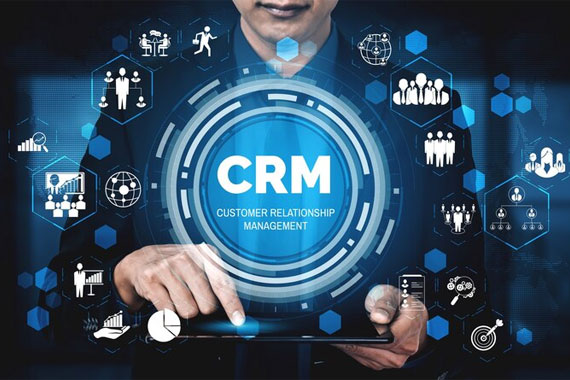In the fast-paced digital age of today, small businesses are more under the spotlight than ever to optimize operations and enhance conversions. That is where CRM software for marketing comes in. At Matebiz, we know the heartbeat of contemporary sales environments, and we’ve witnessed first-hand how the inclusion of smart CRM tools can drastically transform the way small business engages with leads and seal deals.
Gone are those days of spreadsheets and sticky notes to monitor customer interactions. Small businesses today have access to clever, yet economical, tools that enable marketing to be made more personalized, performance based on sales monitoring, and establishing genuine relationships with prospects. And the good news? The tools nowadays are designed to accommodate the requirements and sizes of small-scale ventures.
CRM software for marketing closes the gap between a lead and a faithful customer by streamlining follow-ups, audience segmentation, and actionable insights. It’s not about gathering information; it’s about converting information into strategy—and strategy into sales. At Matebiz, an India-based company serving businesses worldwide, we feel that success for small businesses starts with the right tools and a well-designed system that cares for every potential customer from click to conversion.
Let’s take a closer look at how CRM software for marketing actually equips small businesses to close more deals, beginning with an examination of how it facilitates day-to-day sales activities.
1. Boosting Conversions with a Sales CRM for Small Business
All small businesses wish for steady leads and greater closing percentages. A sales CRM for small business isn’t merely a piece of software—it’s the foundation of structured selling. If it’s implemented correctly, it can give order to a firm’s sales pipeline and eliminate guesswork from the process.
How it works:
- Lead Tracking: Never be unsure where a prospect is in the process of buying.
- Email Integration: Send follow-up emails at the appropriate time, automatically.
- Customer Segmentation: Target unique customer types with unique, pertinent offers.
- Task Automation: Automate redundant tasks such as follow-up reminders and appointment scheduling.
- Deal Forecasting: Gain a real-time snapshot of pipeline value and probability of deals.
When small business teams are clear about what to do, when to do it, and whom to contact, productivity goes into orbit. That’s the potential of a properly implemented sales CRM for small business.
2. Personalizing Customer Journeys with CRM Software for Small Business Sales
For small businesses, the human touch is all that matters. Customers want communication to be human-sounding, not machine-like. A strong CRM software for marketing allows this to happen through the storage of interaction history, preferences, and behavior—all in one location.
Breaking down what this does for small business sales:
- Behavior Tracking – Have an idea of what a customer clicked on, opened, or disregarded.
- Custom Funnels – Create customer paths that morph to individual buyer conduct.
- Cross-Sell/Upsell Opportunities – Recommend products or services based on purchase history.
- Integrated Campaigns – Launch email, SMS, and social campaigns from one dashboard.
- Detailed Reporting – Know which marketing activity drives conversions.
This approach will make sure no customer slips through the cracks and that all interactions are timely and relevant.
With personalized intelligence and automation, CRM software for marketing & best crm for small business converts casual interest into passionate advocacy, providing small businesses with a true advantage in competitive markets.
3. Why CRM Software for Marketing Is No Longer Optional for Small Business Growth
Small businesses tend to put off implementing CRM solutions believing they’re complicated and expensive. However, with today’s cloud-based, modular tools, CRM systems are scalable, user-friendly, and architected to support growing teams.
Here’s why CRM software for marketing is essential:
- Enhances productivity through automation
- Helps deliver consistent, timely communication
- Offers deep insights into what’s working (and what’s not)
- Encourages team collaboration with centralized data
- Reduces customer acquisition costs over time
Even a two-person sales team can benefit from having a single source of truth that outlines customer data, purchase behavior, and follow-up tasks.
It’s not about investing in a tool; it’s about investing in a growth engine. The faster a business can respond to leads and nurture them, the more deals it closes. That’s the real impact of CRM software for marketing.
Read More: CRM-Powered Growth Hacks for Small Businesses in 2025
4. Final Thoughts
Small businesses don’t need to be big to think smart. The secret to consistent growth and higher conversion rates lies in how efficiently customer relationships are managed. With the right CRM software for marketing, even the smallest team can outperform the competition by being faster, smarter, and more connected.
At Matebiz, we know the game-changing value this technology brings—and we’ve seen countless small businesses turn leads into loyal customers with the right setup. While we’re based in India, our services help businesses globally adopt efficient CRM strategies that drive real sales results.
Now’s the time to level up. Don’t just market—market smart.
5. FAQ
- Can CRM software increase sales?
Definitely. CRM tools improve lead follow-ups and close rates. Matebiz uses them to turn leads into paying customers.
- Is CRM software affordable for startups?
Yes, many offer budget plans. Matebiz helps startups pick affordable CRM tools that deliver real value.
- Can CRM software connect with other tools?
Yes, it integrates with email, sales, and social tools. Matebiz sets up CRM systems with full integration support.













